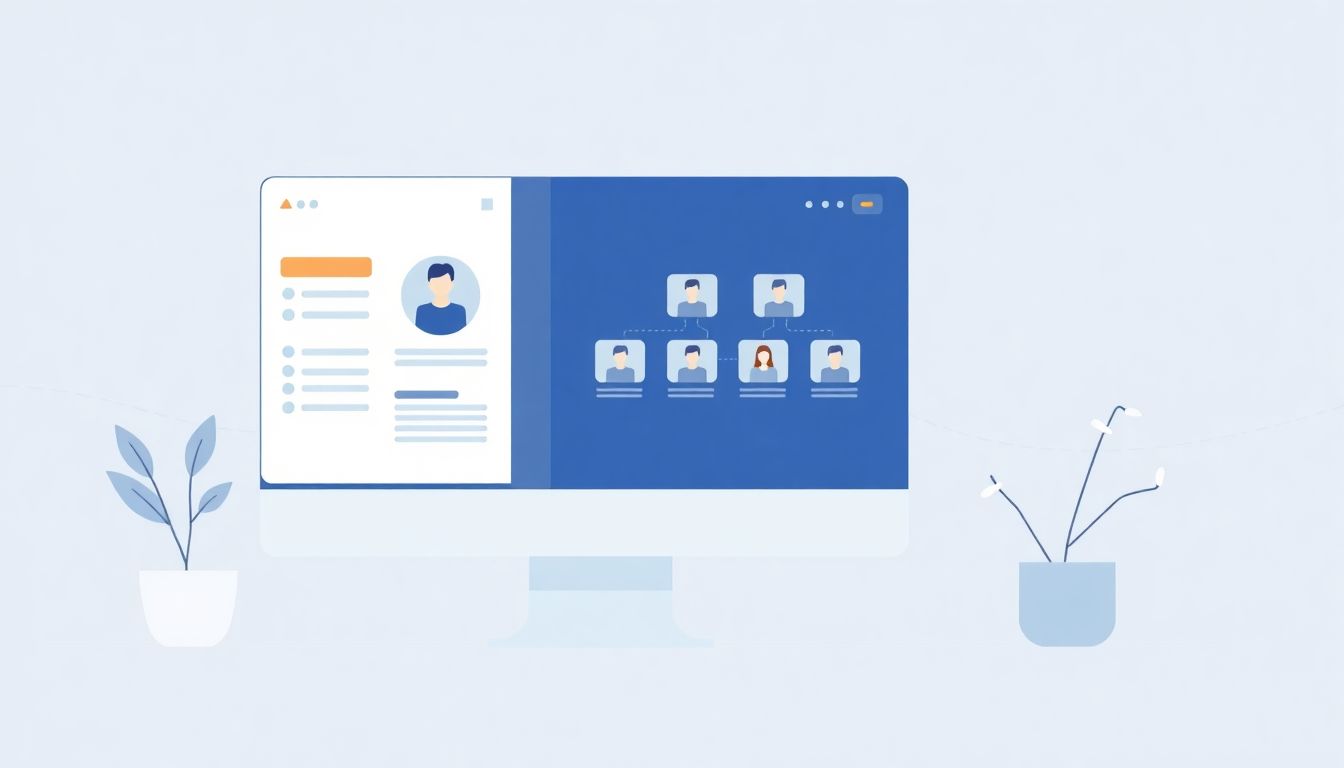If you’re tired of slow and messy hiring processes, you’re not alone. Many find traditional recruiting frustrating, especially with so much time wasted on sorting through resumes. Luckily, AI recruitment marketplaces promise to make hiring faster and more on point, giving you better candidates in less time.
Keep reading, and you’ll see how these platforms are changing the game—helping businesses find the right people quickly and easily. I’ll also highlight the top platforms in 2025 and what features matter most, so you can pick the best fit for your team.
In just a few moments, you’ll get a clear picture of how AI-driven hiring tools can simplify your search and speed up your process—making your life a lot easier.
Key Takeaways
Key Takeaways
- AI recruitment marketplaces are making hiring faster and more accurate by quickly sorting resumes, reducing bias, and predicting candidate performance. Automation tools like chatbots streamline communication and scheduling, saving time.
- Top platforms like HireVue, Hiretual, and InsightLabs use features like video assessments and social profile analysis to improve hiring efficiency and candidate insights, with easy integrations and security being key factors.
- These tools solve common hiring issues: speeding up candidate selection, promoting fairer hiring, and expanding talent pools by identifying passive candidates, leading to better matches and faster fill times.
- The AI recruitment market is growing rapidly, valued at nearly USD 596 million in 2025, with a projected expansion to over USD 860 million by 2030, driven by increasing industry adoption.
- Over half of organizations now use AI in hiring, mainly for resume screening and communication via chatbots. Adoption has increased over 270% since 2019, making AI an essential part of modern recruitment strategies.
- Sectors like healthcare, finance, and tech are adopting AI recruitment faster, helping them fill roles more quickly and competitively due to the automation of sourcing, screening, and assessments.
- AI tools are influencing employment trends by shifting focus toward candidate experience and skills like tech-savviness, while expanding the pool to passive candidates and fostering more diverse hiring.

1. How AI Recruitment Marketplaces Provide Fast and Accurate Hiring Solutions in 2025
By 2025, AI recruitment marketplaces are transforming hiring processes into quick and reliable experiences. These platforms use advanced algorithms to sift through thousands of resumes in seconds, helping employers find the right candidates faster. Instead of manually screening dozens of applications, companies can rely on AI to identify top matches based on skills, experience, and cultural fit.
Not only do they speed things up, but they also improve accuracy. AI tools analyze candidate data objectively, reducing unconscious bias and increasing the chances of hiring qualified candidates. With predictive analytics, these platforms can even forecast a candidate’s potential performance, saving time and lowering hiring errors.
Plus, automation features like chatbots handle candidate questions and scheduling, making sure communication is swift and consistent. This means hiring teams can focus on interviews and strategic decisions instead of juggling administrative tasks. Overall, AI marketplaces for recruitment help businesses fill roles faster and with greater confidence than ever before.
2. The Leading AI Recruitment Marketplaces and Platforms in 2025
Several platforms are dominating the AI recruitment space in 2025. Companies like HireVue, Hiretual, and InsightLabs offer comprehensive AI-driven hiring tools that are widely used by top organizations. These platforms combine resume screening, video interviewing, and talent analytics to streamline the entire recruitment cycle.
For example, HireVue’s AI-powered video assessments evaluate candidates’ non-verbal cues and responses, giving recruiters deeper insights. Meanwhile, Hiretual integrates with multiple ATS systems, pulling data from social profiles and online portfolios to enrich candidate profiles. These leaders are setting the standard with user-friendly interfaces and integrated AI features that are making hiring more efficient.
If you’re looking to leverage these tools, keep an eye on platforms that offer seamless integrations, transparent pricing, and robust data security—traits that are key in 2025’s competitive market.
3. How AI Recruitment Marketplaces Help Solve Key Hiring Challenges Today
One of the biggest hurdles in hiring is finding the right talent quickly without sacrificing quality. In 2025, AI marketplaces are tackling this by automating resume reviews and skill assessments, shortening the time-to-hire significantly. This cuts down endless hours recruiters spend filtering applicants manually.
Another challenge is bias. AI helps make recruitment more fair by focusing on data-driven similarities rather than subjective characteristics. By analyzing patterns and performance metrics, these platforms promote equal-opportunity hiring and help reduce turnover caused by poor matching.
Candidate experience is also improved. Chatbots and personalized communications keep applicants informed and engaged, even during high-volume hiring periods. Plus, AI can identify passive candidates who aren’t actively looking but might be a perfect fit—expanding the talent pool beyond traditional channels.

9. The Growth and Market Size of AI Recruitment Marketplaces in 2025
The AI recruitment market is expanding fast. In 2025, the global market size was valued at around USD 596.16 million according to recent reports.
This growth is driven by more companies adopting AI tools in their hiring processes. The market is expected to grow at a compound annual growth rate (CAGR) of approximately 7.63% from now until 2030, reaching about USD 860.96 million.
Looking ahead, some estimates put the market size at over USD 707.52 million by the end of 2025. And by 2035, forecasts predict the market will surpass USD 1.39 billion.
This rapid growth reflects not only the increasing demand for smarter hiring solutions but also the expanding use of AI across industries.
Companies should consider investing in AI recruitment platforms now, to stay ahead of the curve and tap into this quickly growing market.
10. Industry Adoption Rates and Statistics on AI in Recruitment
AI is now part of many company recruitment strategies. In 2025, about 51% of organizations are using AI when hiring—an increase from previous years.
By the end of this year, it’s estimated that 68% of companies will incorporate AI tools into their hiring process. That’s a jump of over 270% since 2019.
Most recruiters prioritize AI for resume screening—about 82% of companies already do this. Now, many are adding AI chatbots (around 40%</) to improve communication with candidates.
Another interesting trend: over 42% of firms scan social media and online profiles using AI to gather more context about candidates.
This data shows how deeply AI is changing hiring, making it faster and more data-driven.
11. Sector-Specific Growth: Healthcare, Finance, Tech & More
Different industries are ramping up their AI hiring efforts at different speeds. Healthcare, for example, is the fastest growing sector for AI recruitment in 2025, thanks to staff shortages and credentialing needs. It’s projected to grow at a CAGR of 13.3% through 2030.
Similarly, finance and tech companies are increasingly turning to AI to identify candidates quickly in competitive markets. The computer and mathematical roles alone saw over 2 million AI-related job postings between 2010-2022.
Businesses in these sectors are gaining an edge by automating candidate sourcing, screening, and assessments. This approach not only saves time but also helps spot the best-fit talent faster than traditional methods.
So, if you’re hiring in these fields, integrating AI-based platforms can give you a competitive advantage and shrink your hiring cycles.
12. How AI Recruitment Marketplaces Are Shaping Employment Trends
The rise of AI tools isn’t just about making hiring easier; it’s also shifting overall employment trends. As AI takes over some routine tasks, recruiters can focus more on strategic decisions and candidate experience.
This shift is influencing how companies plan their workforce. For example, many firms now look for candidates with tech-savviness or familiarity with AI tools, changing the skills they value most.
Moreover, AI helps identify passive candidates—people not actively looking for jobs—that might be a perfect fit. This expands the candidate pool and can lead to more diverse hires.
In summary, AI recruitment tools are not just a passing trend—they’re actively shaping how businesses find, attract, and retain talent in today’s evolving job market.
FAQs
AI recruitment marketplaces quickly filter and match candidates based on criteria, reducing manual screening and interview times. This streamlines the hiring process and helps companies fill positions faster with suitable talent.
Look for features like advanced matching algorithms, candidate sourcing tools, integration capabilities, user-friendly interfaces, and analytics dashboards. These elements enhance hiring speed and accuracy.
They help reduce bias, improve candidate matching, and speed up hiring timelines. AI tools analyze vast data to find suitable candidates and streamline decision-making for better hiring outcomes.
Expect increased use of predictive analytics, greater integration with HR platforms, and more personalized candidate experiences. AI will continue to evolve, making hiring more efficient and accurate in 2025.